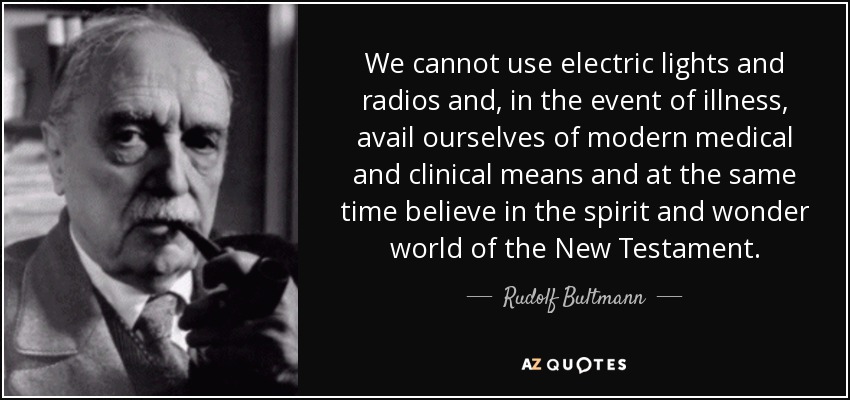- The change of Christian community from ad hoc small groups of Christians to a more hierarchical church structure.
- Moving from a word and preaching based spirituality to a sacramental spirituality.
- Moving from a low Christology to a high Christology. That is believing moving from seeing Jesus as a remarkable human being to seeing Jesus as being co-equal and co-eternal with the Father.
Now it is difficult to overstate the impact his ideas had on modern scholarship. They were pretty much universally accepted. It is not hard to see why. They were perfect for Protestants because they asserted that the early church was basically protestant in nature. It seemed to address the objection that the reformation changed Christianity into something it had never been before. Of course the low Christology is not a protestant thing. They believe in the divinity of Christ. Still the principle they accepted. That the early church, the really early church, was nothing like the Catholic church.
Atheists loved the theory because it removes the supernatural elements from the story. It seemed to give a path by which you could get from a nice Jesus who did not do any miracles or rise from the dead to the deified Jesus that Christianity defined in the 4th century. It all sounded good. It still sounds good. You talk to any atheist on line and you will quickly get bold assertions that the New Testament developed over time and mostly would have been completely foreign to the Jews of the early 1st century.
The only trouble with this theory is it does not make any sense. It does not fit the data. There is simply nothing to indicate these stages happened. The earliest writings we have go back to the end of the 1st century and beginning of the second century. Clement of Rome, the Didache, Ignatius of Antioch, etc, etc. They are all clearly in the Early Catholic camp. So Bultmann has very little time for his 4 other stages. Really religions don't change their core beliefs that quickly and that silently. Even small changes happen slow and with much controversy. So it is massively implausible right out of the gate.
The evidence brought forward for such a proposal does not really work. The principle idea is the gospels of Matthew, Mark and Luke contain an earlier and lower view of Jesus. Except they don't. The Gospel of John contains more theologically explicit divinity claims like in John 1:1 and John 20:28. Still there are many things Jesus said and did in the synoptic gospels that point to His divinity.
Anyway, what strikes me is how protestant thinking really leads to atheism if you take it to its logical conclusion. When we see that the earliest church we have evidence for is very Catholic in its belief and practise then what do we do? If we imagine the church changed so quickly and so radically because we don't want to put Catholicism in such a central place then you have opened to door to any imagined starting point. A church that is constantly rewriting its scriptures starts to make sense to people. The scholars who should be able to tell what is plausible and what is not end up being willing to accept pretty much anything. Anything but a Jesus who actually rose from the dead.
The fact is early Christianity came quite suddenly and changed the world quite dramatically. It is something that is not explainable in natural terms. By twisting the data for our own purposes we cause others to miss the significance of the incarnation and the resurrection. That Jesus really did bring something that humans could not have made on their own. That thing did not morph into the Catholic church. It is the Catholic church.

No comments:
Post a Comment